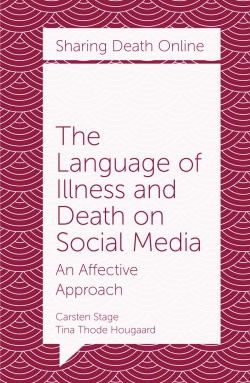New book: The Language of Illness and Death on Social Media
CFI member Tina Thode Hougaard and Carsten Stage, both from the School of Communication and Culture, Aarhus University, have written a new book investigating the language created and used on social media to express and respond to personal experiences of illness, dying and mourning.

In the book The Language of Illness and Death on Social Media: An Affective Approach the authors begin by setting out the established and recent research on social and existential media, affect and language, before focusing on Facebook groups dealing with the illness and death of two Danish children. Through these in-depth case studies, they produce insights into different ways of engaging in affective processes related to illness and death on social media, and into both the ritualized and innovative vernacular vocabulary created through these encounters.
Developing an analytical framework for understanding the social role and logics of "affective language" (such as emojis, interjections and other forms of expressive interactive writing), the authors have adopted an explorative approach to understanding the affective importance and roles of language for sharing experiences of illness, death and commemoration in these spheres.
The book seeks to answer the following questions:
- How can language be approaches in ways that foreground the bodily relationality and affectivity of communication and social media?
- What can the use of language teach us about the existential, relational, social, and affective processes taking place in cancer-related publics and commemorative sites on social media?
